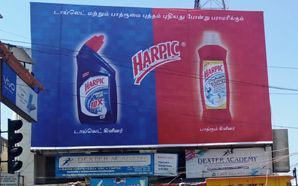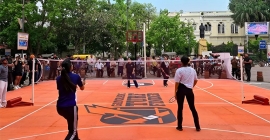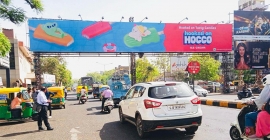Benckiser celebrates hygiene drive in schools
By M4G Bureau - June 03, 2019
The on-ground activation celebrated the success and completion of three years of its Dettol School Hygiene Education programme
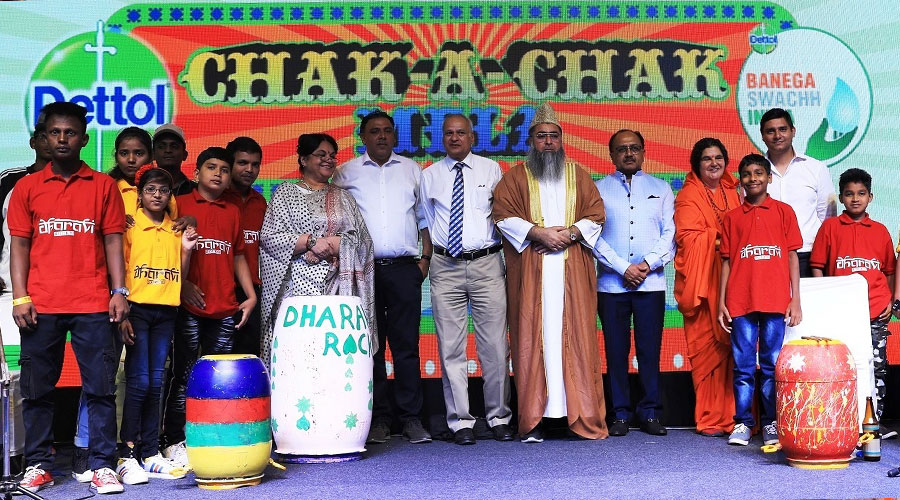
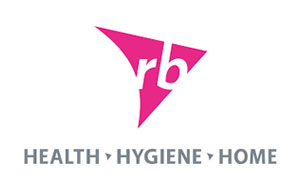 Reckitt Benckiser (RB), world’s leading consumer health and hygiene company, collaborated with the Global Citizen India, to celebrate the success and completion of three years of its Dettol School Hygiene Education programme through a one-of-its-kind on ground activation named ‘Chaka Chak Mela’, in New Delhi.
Reckitt Benckiser (RB), world’s leading consumer health and hygiene company, collaborated with the Global Citizen India, to celebrate the success and completion of three years of its Dettol School Hygiene Education programme through a one-of-its-kind on ground activation named ‘Chaka Chak Mela’, in New Delhi.
RB is delivering the initiative in partnership with the Aga Khan Foundation, Samhita, Collective Good Foundation, Learning Links Foundation ADRA and Pehel across urban and rural schools in the states of Bihar, Gujarat, Madhya Pradesh, Maharashtra, Telangana and Uttar Pradesh.
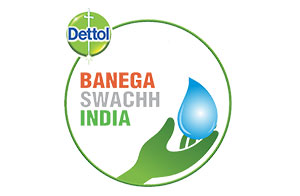 Congratulating the partners on the milestone, Gaurav Jain, Senior Vice President, Africa, Middle East and South Asia (AMESA), RB Health India, said, "Children are the change-agents of the society, and reaching out early to them mean ensuring that we inspire these young minds to inculcate the learning into a habit. We are proud to see the positive impact on the handwashing habits of schoolchildren across exposed to the Dettol School Hygiene Education curriculum. We have focused on a five-step experiential learning method, which has allowed us to touch upon five crucial everyday aspects of hygiene. I am sure that once the students understand these basic hygiene measures, they would turn into influencers for others, and nation-builders of tomorrow.”
Congratulating the partners on the milestone, Gaurav Jain, Senior Vice President, Africa, Middle East and South Asia (AMESA), RB Health India, said, "Children are the change-agents of the society, and reaching out early to them mean ensuring that we inspire these young minds to inculcate the learning into a habit. We are proud to see the positive impact on the handwashing habits of schoolchildren across exposed to the Dettol School Hygiene Education curriculum. We have focused on a five-step experiential learning method, which has allowed us to touch upon five crucial everyday aspects of hygiene. I am sure that once the students understand these basic hygiene measures, they would turn into influencers for others, and nation-builders of tomorrow.”
“We are proud of our strong partnership with Reckitt Benckiser that has enabled the Aga Khan Foundation and its implementing partners to implement a vibrant and extremely effective school hygiene education programme across 1000 schools in some of the most vulnerable geographies. Together with RB, we are working to collectively address the issue of sanitation and hygiene in schools by inculcating regular handwashing practices as well as strengthening school capacity to prioritize WASH-in-Schools. The simple child friendly tools, messages and campaigns developed by RB, have been widely appreciated by district officials across all our project locations, facilitating wider outreach and scaling up of the initiative to over 3000 schools in 2019”, says Tinni Sawhney, CEO, Aga Khan Foundation, South Asia.
In order to curate an effective event to celebrate the success of the initiative, RB collaborated with the Global Citizen India to design the event around the theme of an Indian carnival, or a mela. The event focused on seeding the information that sanitation and hygiene are quintessential Indian concepts that can be easily taught through various cultural tools, indigenous to the subcontinent. Each of these activities was carefully selected to organize a familiar yet informative and engaging experience. It witnessed activities such as nukkad natak-street play popular in North India, puppetry from Rajasthan, Hip-Hop and rap, popular in slums across Maharashtra.
The event also saw a parallel activity involving training of teachers, the most influential stakeholders. The experiential activity delivered exercise on developing soft skills, becoming leaders and role models for students, with a focus on imparting knowledge on hand-hygiene.
The objective of the initiative was to use 5-step experiential learning methods to increase knowledge and inculcate good habits of hygiene-related behaviors among school-age children from an early age. Keeping this in mind, the partnership between RB and its partners Aga Khan Foundation, Samhita, Collective Good Foundation, Learning Links Foundation ADRA and Pehel conducted over 154,000 awareness campaigns and sessions on the subject of handwashing and hygiene.
The work undertaken through these sessions of offline curriculum and E-Curriculum influenced over 4.52 Million schoolchildren across the target states of Bihar, Gujarat, Maharashtra, Telangana, Uttar Pradesh, Rajasthan, Andhra Pradesh, Tamil Nadu . This also resulted in the children influencing their families, thereby, creating a multiplier effect. Under the program, 690 soap banks were installed that delivered direct benefits to approximately 38,000 school children. Furthermore 4500 Schools with dedicated Dettol hygiene corners and 4700 Children Hygiene Parliament sessions having been undertaken by children exposed to the Dettol School Hygiene Program.
For more updates, subscribe to media4growth newsletter - Click here

Stay on top of OOH media trends

